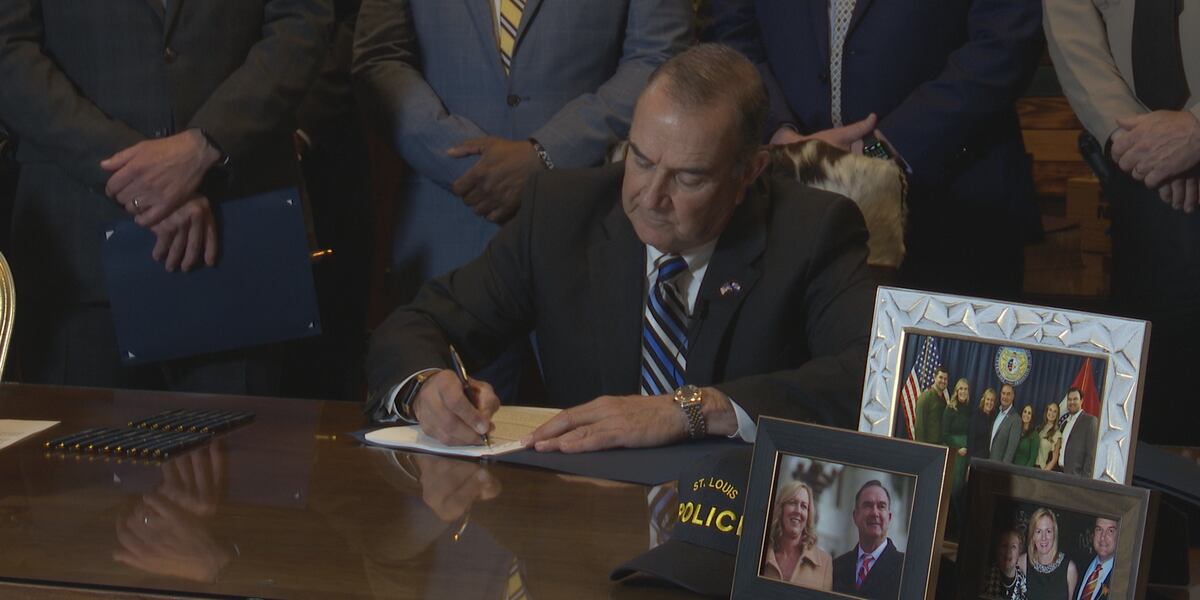Kehoe signs expansive public safety bill, putting Missouri's largest city police department under state control

JEFFERSON CITY, Mo. (WGEM) - Governor Mike Kehoe has signed his first non-budget bill, an extensive public safety measure that has stirred controversy, particularly for placing the St. Louis Metropolitan Police under state control. The governor emphasized that the safety of St. Louis, as a major economic hub in Missouri, is crucial for the entire state. With an emergency clause attached, all provisions of the new law take effect immediately.
Kehoe highlighted the importance of enabling law enforcement to perform their duties effectively, attributing some challenges to policies that may hinder their performance. The governor's signing event included several law enforcement representatives, such as Lake Saint Louis Police Chief Chris DiGiuseppi, who expressed optimism that the new law would lead to a reduction in crime.
Beyond the state control of the St. Louis police, the bill addresses various issues, including immigration and restitution, and incorporates priorities negotiated by Democratic senators. One noteworthy point is that the restitution component was previously vetoed by the former governor, but this new framework is positioned to avoid similar setbacks.
However, the implications of state-controlled police have raised concerns among some community activists. Kristin Bowen from Moms Demand Action warned about outside interference in local governance, questioning which city might be next to have its police force placed under state control. Currently, St. Louis and Kansas City are the only two cities in Missouri where the local mayor does not hold authority over the police.
Historical context plays a significant role in this discussion, as St. Louis Police were previously under state control until a 2012 referendum reverted control back to the city. Public sentiment appears divided, with a St. Louis University poll indicating that 47% of likely Missouri voters oppose the state control of the SLMP, while support for local governance remains strong across other cities such as Kansas City and Springfield.